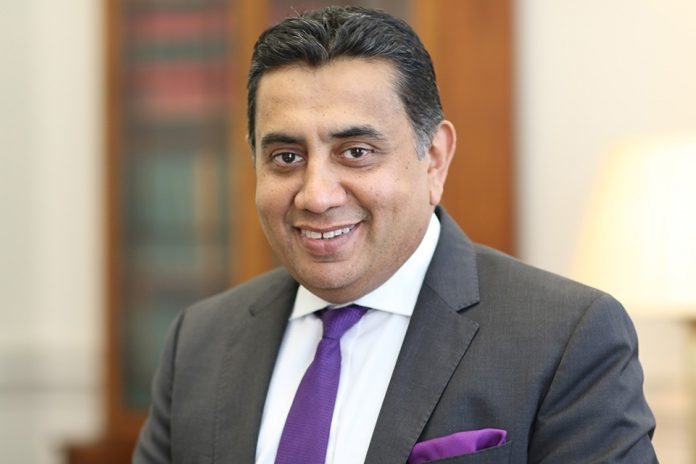Thank you, Mr. President for keeping the linked challenges of environment and security on the Council’s agenda and for shining a light on how the changing climate is eroding human security across both the Sahel and the Lake Chad basin.
Thank you, also, to our expert briefers, to Peter Maurer, Ibrahim Thiaw and to Inna Modja for your very valuable insights. Peter, it’s great seeing you again. It’s important that we keep expert insights on our debates at the Security Council. As we reflect, it was 13 years ago since the U.K. convened the first open Security Council debate on the importance of climate security. Indeed, this is the second time I have joined Security Council debates in three months. And it underlines the importance that we collectively attach to this important agenda.
And as we work towards COP26 in Glasgow next year and seek to turn the commitments made in the Paris accord into specific deliverable actions, there are 200,000 people who are victims of floods across Chad and Niger telling us that now, not tomorrow, but now is the time to act.
Climate change exacerbates food insecurity and indeed the causes of conflict. There are now 20 million people in need of humanitarian assistance across the Sahel this year, again telling us now is the time to act.
The most recent UK Strategic Defense and Security Review in 2015 identified climate change as one of the biggest global long-term challenges to UK security. And this year, for the first time in its history, the top five global risks in the World Economic Forum’s annual report were all environmental. The Sahel, with temperatures warming at one and a half times the global average, knows all too well the urgency of this threat. The warnings grow louder and louder and come from further and further afield. Now is the time to act.
For our part, the United Kingdom has sought to lead by example. In the Sahel, we gave $64 million (£50 million) to the World Bank’s Adaptive Social Protection Program over the last six years to help governments of the region improve weather data and adapt to climate shocks. Over the same period, we have spent a $179 million in the region on pilot projects to build resilience and adaptation measures. Overall, the United Kingdom has pledged to provide over $14 billion of international climate finance over the next five years. A significant proportion of that will go towards building resilience. The cliché that we can only overcome this problem by working together has rarely been so true.
This challenge is huge and that is why we have committed to use our co-presidency of COP26 to drive forward the expansion of climate financing, to improve early warning systems and the capacity of countries to act on the risks and to strengthen inclusive social protections, especially for women and the most vulnerable across societies.
Climate change and conflict dynamics interact in a vicious circle. Of course, we must tackle the governance challenges that are the root cause of conflict. But, your Excellencies, if this Security Council is to support peace and security in regions on the frontline in the battle against climate change, we must also make climate risk assessment and climate resilience an integral part of the Council’s work.
We need to routinely factor climate risks into UN conflict prevention and resolution strategies and into peacebuilding plans. We need to strengthen the ability of our UN system to analyse and act upon climate risk as a fundamental way of working. We know from our work together that insecurity hits the most marginalised and the most disadvantaged groups the hardest.
The same is true of climate driven insecurity. And as we all know, tragically and sadly, it is girls and women who are routinely more exposed to disaster induced poverty and indeed exploitation. And our approach to climate security must absolutely address the needs and priorities of women and girls and draw on their potential to lead our collective response from their key positions within their own communities.
Mr. President, in thanking you once again for convening this important debate, I would conclude by saying that the regions of the Sahel and the Lake Chad basin provide us all with hard and harrowing evidence that climate related security threats are real. They exist. They are immediate and profoundly undemocratic, and we must address them in a collective and holistic way. And the UN Security Council presents to us the best vehicle we have for doing just that. And now is the time to act.
Thank you, Mr. President.







